This post is sponsored by Blue Cross® Blue Shield® of Arizona.
All opinions are my own. #BCBSAZHealthy
Tips for teaching your child about sportsmanship
My husband and I both grew up in sports families. We watched and played team sports from a very early age and learned about “being a good sport” from coaches, teammates, siblings and our parents. While we learned what good sportsmanship is from more positive experiences, we also learned about poor sportsmanship. In junior high I made the softball All-Star team in our small-town community summer league. I was proud of the accomplishment, but my excitement came to an abrupt halt when parents of children that were cut from the team loudly proclaimed their disappointment in the coaches’ selection. An adult walked on the field in an attempt to dispute the decision, and voiced opinions on why other children should have made the team instead of me. In that moment, I was embarrassed. At such a young age, I was the focus of negative attention — in front of my community. And, despite being part of the team, felt shamed by someone else’s display of poor sportsmanship.
Through this experience, I learned the importance of sportsmanship as players and how parents could work toward being good sports too. Blue Cross Blue Shield of Arizona (BCBSAZ) is a trusted resource for health and wellness tips and resources not only for its members, but for all Arizonans. Our commitment to being mentally and physically healthy this year, alongside BCBSAZ, has us focusing on the importance of teaching sportsmanship in youth sports.
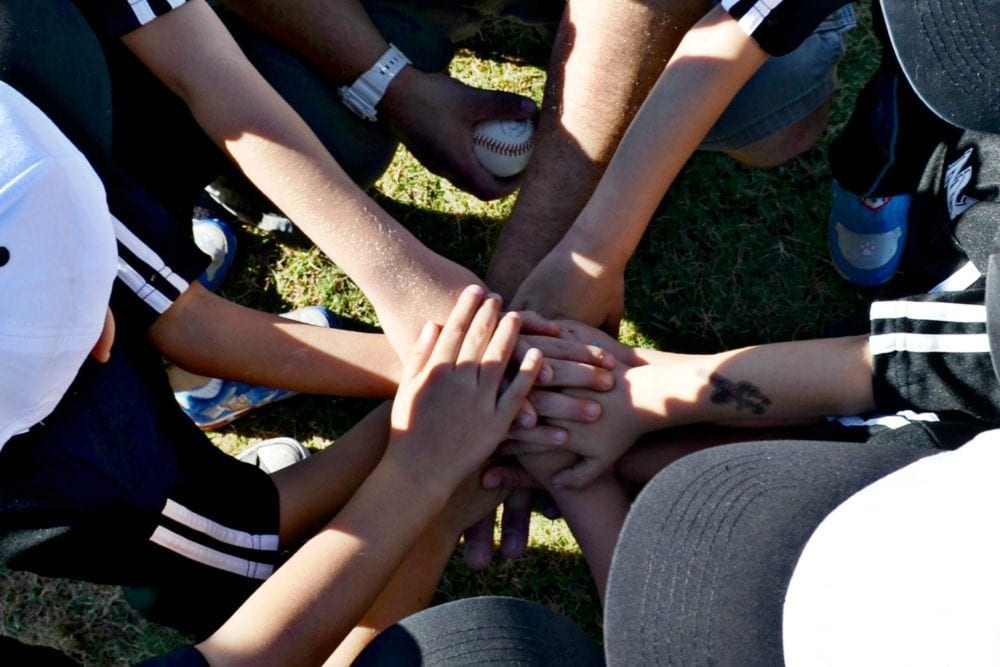
Our oldest daughter has been participating in competitive youth rock climbing since she was invited to try out for the team at just six years old. We have hundreds of examples of teammates, competitors, coaches and parents showing incredible sportsmanship. Unfortunately, we also have a handful of less than awesome experiences leaving a deep impression on our daughter and teammates, much like my own negative experience as a child. This happens in all sports, at all ages, and at all competition levels. The importance of teaching sportsmanship in youth sports comes with two different messages. Teach your child how to be a good sport and teach them how to recognize bad sportsmanship in a way that does not negatively impact their desire to participate.
Coaches in youth sports generally have a commitment to teaching about good sportsmanship. Your children will learn the basics by participating in organized youth sports. They’ll learn to cheer for their teammates and encourage each other. They’ll learn to be excited to win and acknowledge personal growth. Some sports for younger children, like t-ball, line up to shake hands or give high fives with opposing teams at the end of every game. Although the coaches teach the introduction of instilling positive behaviors, it’s not only the coach’s responsibility to teach your child how to be a good sport.
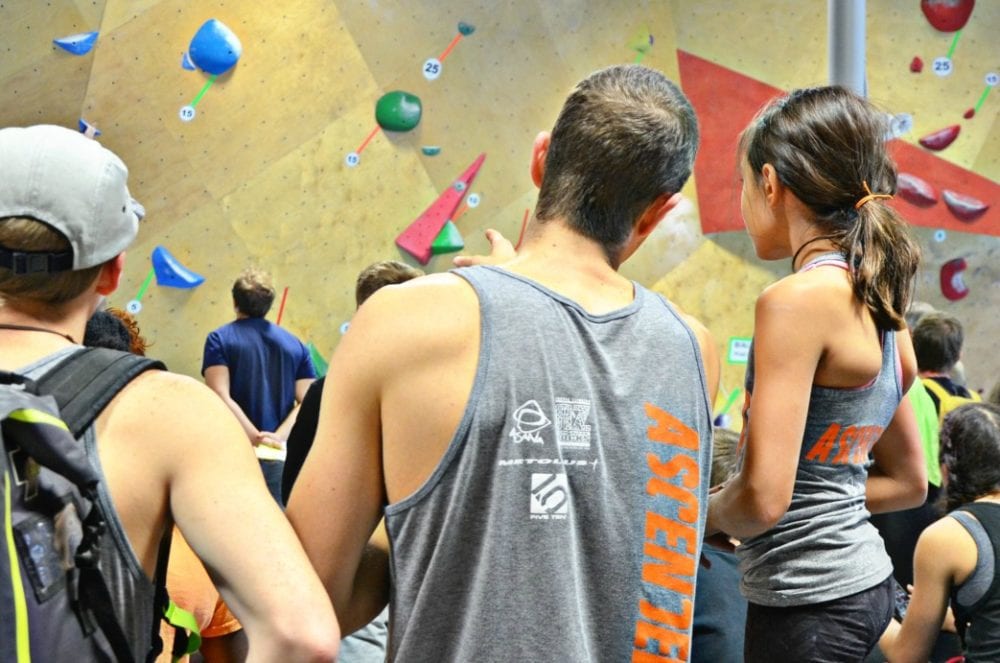
Tips for teaching your child about sportsmanship
Communicate
Proactively talk to your child about the right and wrong way to behave. Learning how to react to not winning is a critical lesson in sportsmanship for children. Expressing emotions, whether it be anger or sadness, is healthy for children and should be supported. However, good sportsmanship must be maintained on and off the court regardless of the disappointment.
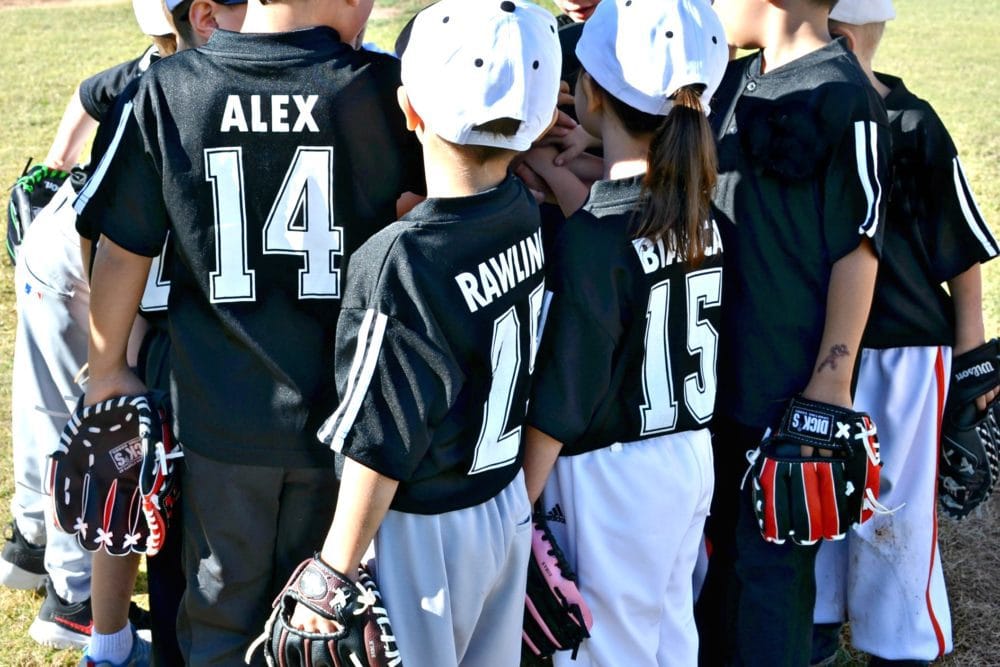
Be aware
Observe your child’s interactions with teammates and competitors. Although each rock climber receives a personal score in competitions, the overall score of all teammates lead to team ranks too. Teams practice together and show support when their teammates are climbing.
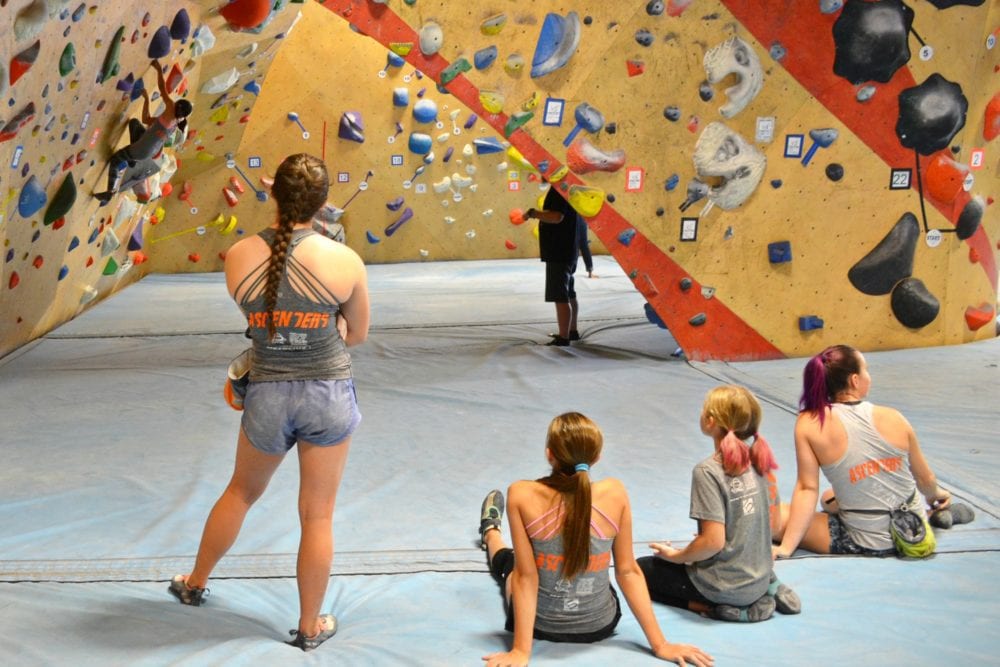
Competitors are in the same competition categories as they grow up competing against each other, so they form bonds and friendships despite not living in the same cities or states. Your child’s behavior and interactions with competitors from other teams are an important opportunity to display sportsmanship too.
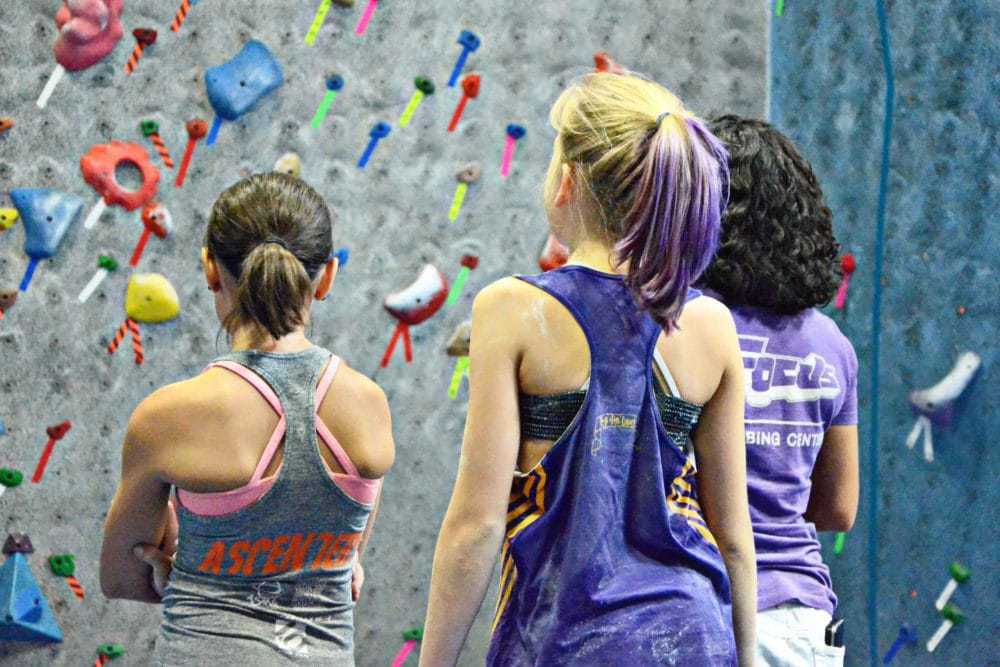
Set the right example
Your child will follow your lead when you set the right example. Instead of only pointing out incorrect behaviors, identify and positively celebrate when your child is uplifting a teammate or competitor. Congratulate your child for being a good sport through the losses and help them understand the value in not winning.
Strive to be your best
Teach your children that although in team sports it feels good to win, every day can be a success when they see the value in striving to be their best. Every step in bettering yourself physically and mentally is a win.
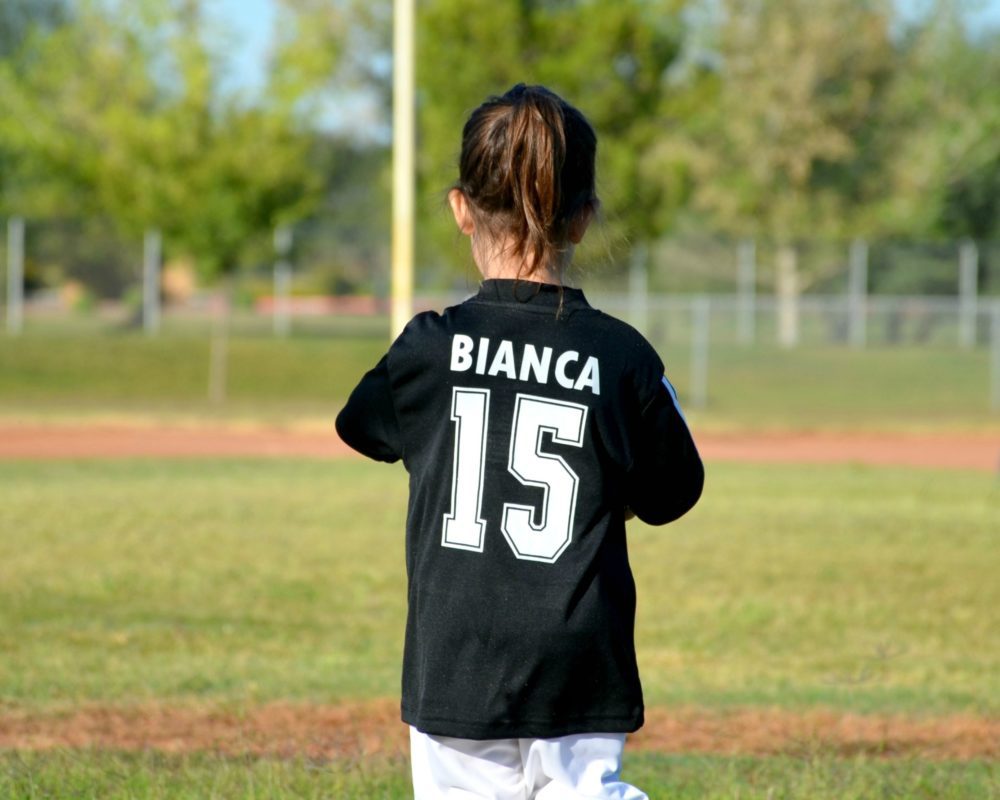
You can only control your own behavior
The hardest lesson I learned as a young athlete is that you are only in control of your own behavior. If bad sportsmanship is directed at you, you choose your own response. Teach your children to feel proud for the way they conduct themselves in a positive manner because as they grow, we don’t always have the opportunity to help them navigate the hard things.
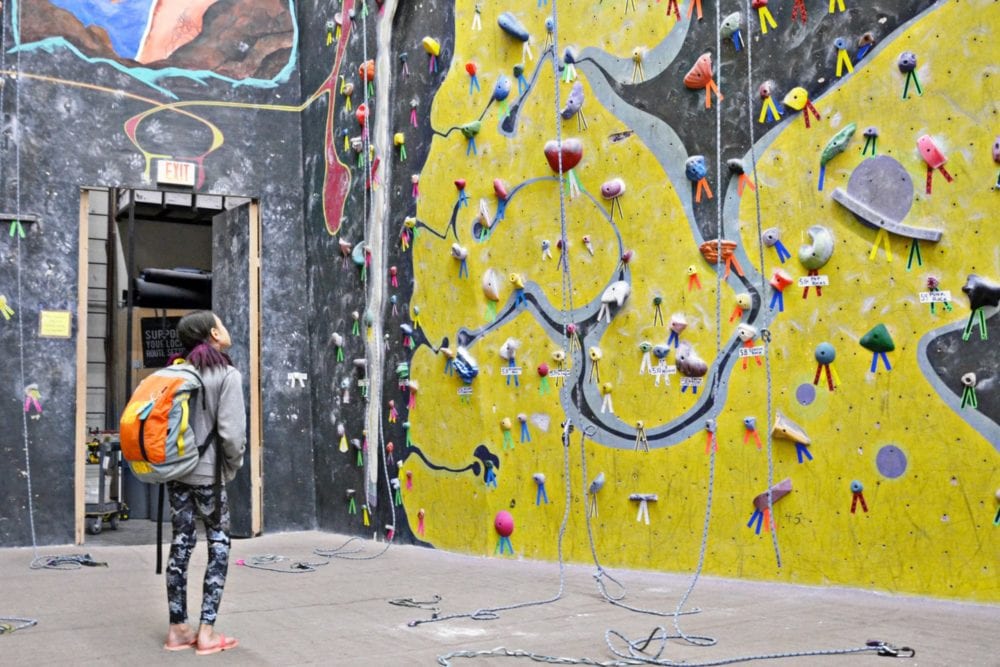
Do you have a personal example of the importance of teaching sportsmanship in youth sports?
Learn more about BCBSAZ and how they have been dedicated to improving the health of Arizonans for more than 80 years by connecting with them on Facebook and Instagram. Follow along our Instagram Stories Family Wellness feature to see our commitment to family health and wellness.
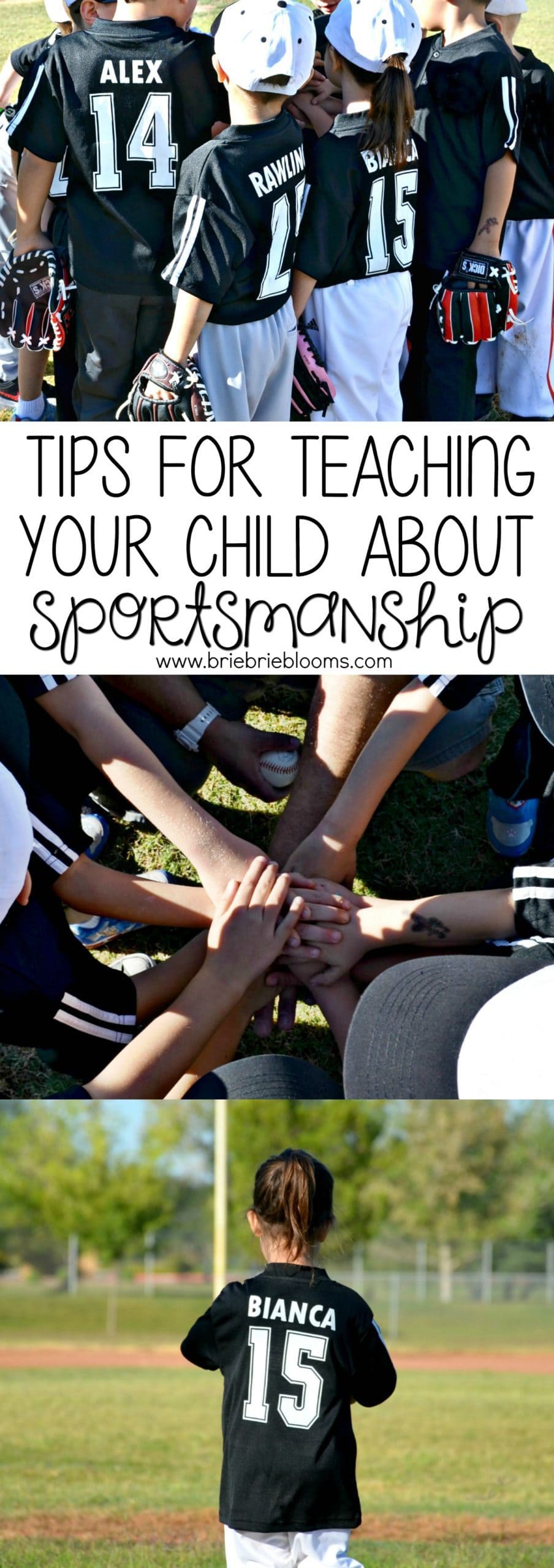

I love it!!! And yes it is all about teaching the kids sportsmanship and not competitiveness. Love it! Thanks a lot.
Thanks! My oldest is very competitive and winning is important to her. But I really feel like those losses are what helps us grow.
I love these tips! It takes a whole team to be successful and is not just about 1-2 members. I need to share this with my oldest to remind her.
Thanks! It’s a tougher message to younger kids when they are playing independent sports. I do feel it’s important for children to see the value in being part of a team.
This is good. I think the parents need to learn this as well
Parents so often forget how their behaviors impact everyone with visibility to their behavior.
These are some great tips. I think every child should know about sportsmanship. It’s definitely something very important.
Thanks and agreed, it’s such an important life lesson.
This is so important to teach our children from the very beginning. I love your tips.
Thank you, starting early with the right messages is important.
Sportsmanship is an important skill to learn and these are all great ways to teach our children about it. Love how you laid it out in such simple terms. A very good resource for parents.
Thanks, we have a greater responsibility to make sure our children are learning appropriate self expression.
Sport is so important to be honest and in order to build a strong character we need to introduce kids to sports as much as possible and stick with it. Learn from the team and they will grow. I love your post. Very well written.
Thank you, I do agree it’s important to teach our children to follow through with their commitments. My oldest never quits but my youngest is only four and she wants to try everything then quickly decides it’s not the right activity for her. It’s a tough balance when they’re little.
As a mom of 5 {one who is currently a college athlete}, I’ve been to a whole lot of sporting events over the years. Unfortunately many of the worst displays of sportsmanship have come from adults. It’s given us many teaching moments with our kids and we’ve talked about the importance of attitude, what we say, and the way we treat other people. Sportsmanship encompasses so many important life lessons.
Thank you for sharing your experience. We’ve seen this as well and it’s hard to navigate when you know their children and many others are observing these actions. It certainly has served as great learning opportunities for our family too.
thanks for this lovely useful sharing, learnt the tips shared & definitely helpful for me to guide my little niece to appreciating sportmanship 😀 cheers, siennylovesdrawing
Thanks for commenting, these tips are great for all adults with exposure to children in sports.
I love when children love sports. It’s so important to have a good behavior when you practice it, especially in a team!
Agreed, we are having so much fun watching both our daughters love their playing different sports.
All my children were actively involved in sports when they were young. I always reminded them that playing sports is not about winning every game. It is in being part of a team, working as a team and learning as a team! Camaraderie, sportsmanship and love for the game is what they should value more than just beating the opponent.
It’s so important to teach children winning with a higher score is not most important.
Sports has become such an intense thing. My daughter loves sports, but I’m not a crazy sports parent. It is all about teamwork and the benefits of physical activity and all those things.
I agree, when they are young it’s so great to see them excited to get active.
We’re always teaching our kids the value of sportsmanship and working as a team — on and off the field. It’s an essential part of living.
So true, good sportsmanship can be displayed anywhere!
We do try to teach my niece sportsmanship but sometimes it feels like it’s not enough. I will share this with my sister!
When they are little sometimes it feels like that message isn’t getting through to them but just keep showing them by being a great example. Our oldest daughter had a tough time not winning all board games and now she laughs when we tell her those stories.
I think this is wonderful for sure and teaching your kids sportsmanship is super important especially when you hear about instances where the parents are embarrassing their kids by getting crazy on the sidelines… not a good example at all 🙁 This is a lifestyle lesson for when they are adults as well so thank you for sharing!
Oh I definitely learned how not to behave by being a part of that experience as a child.
These are helpful and important tips not just in sports but in life as well. Spot on! Thanks for sharing.
Thanks, agreed on sportsmanship being a great life lesson for many other experiences in life.
I think this tips can also be applied to life as well. Thank you so much for these tips.
Definitely agree!
Such a hard topic! My son was bullied in sports and since then, I know he does not have a positive opinion on how players act. Loved your post, though! Such much food for thought!
That’s so unfortunate, I hope he overcomes those negative feelings.
This is so important. A hard topic as well. You have to be nice , even when other players are mean and its hard. I was bitten in a basketball game once. Wanted to bite her back lol.
Oh goodness, that’s not great at all. So many learning opportunities are wrapped into our childhood sports experiences.
My kids are just getting into sports, so this was the perfect time for me to read this post!
It’s so much fun when they start getting their own little personalities and can really share what they want to participate in.
These are great tips! I wish my kids were more interested in participating in sports.
These lessons are for all kids activities, not just sports. I was also involved in many clubs and other competitive opportunities as a kid – sportsmanship can be applied everywhere.